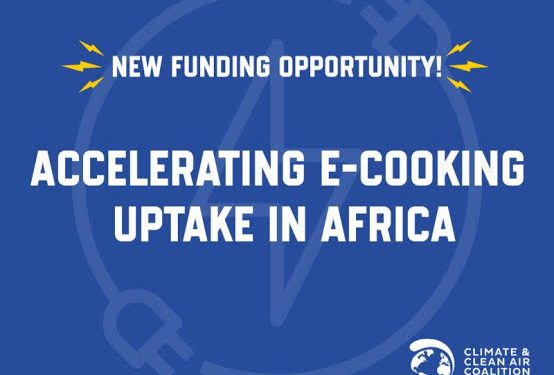For businesses and organisations in Africa developing electric cooking (eCooking) solutions that can reduce indoor air pollution and carbon emissions, the CCAC Challenge Program offers an excellent opportunity. Through this call for proposals, the Climate & Clean Air Coalition seeks to support scalable eCooking projects across Africa.
Indoor smoke from solid fuels remains a major health and environmental issue in many African countries. The CCAC has launched this targeted challenge to incentivise innovations that shift households and small enterprises to cleaner, electric-based cooking methods. According to the coalition’s programme page, each challenge is designed with clear outcomes, evaluation criteria and tailored assistance.
For entrepreneurs, SMEs, NGOs and energy-service providers, this represents more than a grant: it is a chance to engage with a global network, receive technical assistance, pilot eCooking solutions, and scale impact. Given the increasing global focus on clean energy transition, being part of this initiative can open doors to funding, partnerships and recognition.
Program Benefits
- Funding support for selected projects (budget thresholds and amounts defined in call)
- Access to technical assistance and expert coaching through the CCAC for implementing eCooking solutions
- Visibility among international clean-air and clean-energy networks
- Potential to pilot and scale technologies or business models that target household or small enterprise cooking in Africa
Eligibility Criteria
- Projects must propose eCooking solutions implemented in one or more African countries.
- Applicants must respect submission completeness, relevance (to the challenge aims) and budget parameters.
- Applicants may be businesses, NGOs, or other organisations — the call is not restricted exclusively to startups.
- Applicants should be ready to deliver measurable outcomes aligned with the CCAC’s objectives of reducing pollution and promoting cleaner cooking.
Duration
The call covers a project implementation period as defined in the official terms; selected projects will enter the CCAC Challenge stream and progress through implementation, monitoring and evaluation phases.
Deadline
Refer to the official call webpage for the specific deadline and submission timeline. (Check the “Calls for Proposals” section on the CCAC website)
Tips or FAQs: Guidance for Applicants
- Describe real, measurable impact: Provide clear metrics such as the number of households served, reduction in emissions or fuel-use, cost savings for users.
- Show business viability or scalability: Beyond the model’s technical soundness, demonstrate how you will sustain it and scale beyond the pilot.
- Address local context: Tailor your proposal to the specific country/region’s energy access, infrastructure constraints, user behaviour around cooking.
- Clarify technology and user adoption: eCooking is new to many markets. Include how you will ensure user uptake, training, maintenance, and affordability.
- Pay attention to budget and timeline: Make sure your budget aligns with the requirements of the call and that your timeline is realistic for delivery, monitoring and evaluation.
- Avoid vague claims: Phrases like “we will transform cooking” are less helpful than “we will shift X households from firewood to electric cooking within 12 months, reducing Y tons CO₂ and saving Z Naira per household”.
- Prepare your documentation: Gather organisational profile, past project evidence (if any), team credentials, stakeholder partnerships, financial projections.
- Submit early: Given the competitive nature and limited window, aim to finish and submit ahead of the deadline.
How to Apply
- Visit the official CCAC call page for this challenge: CCAC Challenge Programme – Accelerating Uptake of eCooking in Africa
- Review the full call document and guidelines (including eligibility, budget, expected outcomes, scope) via the “Calls for Proposals” section.
- Prepare your proposal, budget, timeline, organisational details and supporting documents.
- Submit via the specified online portal or email as indicated in the call guidelines.
- Monitor for updates from CCAC regarding short-listing, selection and next steps.










